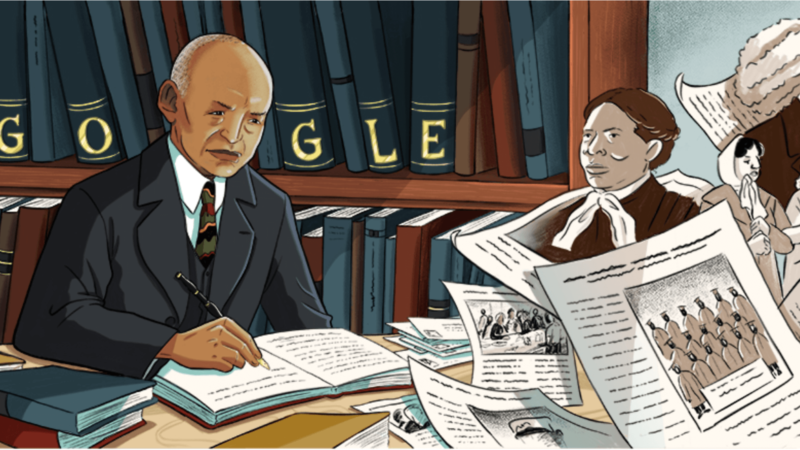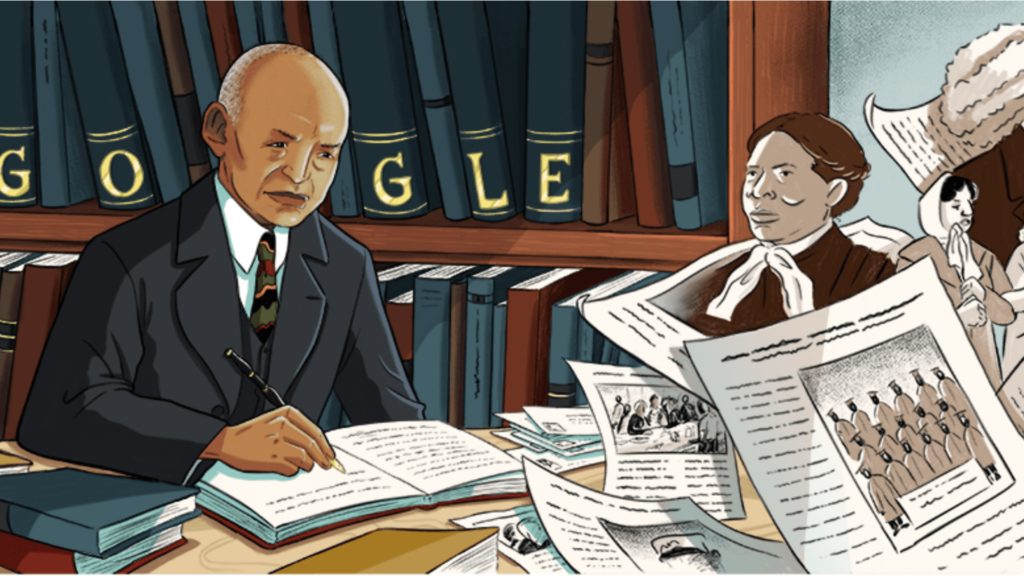
To kick off Black History Month, today’s Google doodle pays homage to Dr. Carter G. Woodson — the scholar who, in February 1926, first devised an African-American studies program.
Known as the Father of Black History, Dr. Woodson committed his life to African-American studies and the preservation of African-American history. It was his week-long event promoting African-American studies that eventually became Black History Month.
According to Google, Dr. Woodson chose February to focus on African-American studies because it is the birth month of both abolitionist Frederick Douglass and President Abraham Lincoln.
Born in New Canton, Virginia, in 1875, Dr. Woodson was the son of former slaves Anne Eliza and James Henry Woodson. He was able to enter high school in 1895 and eventually earned a master’s degree from the University of Chicago. He continued his studies and became the second African-American to receive his doctorate from Harvard University.
From Dr. Carter G. Woodson African American Museum website:
In 1915, he and friends established the Association for the Study of Negro Life and History. A year later, the Journal of Negro History began quarterly publication. Dr. Woodson was the founder of Associated Publishers, the founder and editor of the Negro History Bulletin, and the author of more than 30 books. His best known publication is “The Mis-Education of the Negro,” originally published in 1933 and still pertinent today.
The doodle was designed by Virginia-based illustrator Shannon Wright, whose work has appeared in numerous publications, including The New York Times, Mother Jones and TIME Magazine. It leads to a search for “Carter G. Woodson” and features the scholar in his library with images of African-American leaders at his side.

“Woodson’s commitment to achieve an education for himself and spread awareness and pride in Black history inspired me and continues to do so in so many ways,” writes Google’s director of brand marketing, Sherice Torres on the Google Doodle Blog, “When I voiced my ambition to go to Harvard, I was told by teachers, guidance counselors, and even some family members that people like me didn’t go to schools like that.”
An active member of the Black Googlers Network, Torres says it was American leaders like Dr. Woodson who gave her the confidence to follow her dreams and achieve more than she ever imagined.

